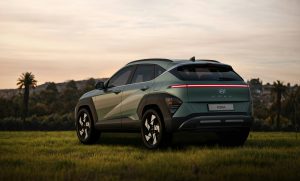The Ultimate Deep Dive into Future Transportation Concepts
The way we move from one place to another is an essential part of our daily lives. From horse-drawn carriages to modern-day cars, transportation has come a long way in terms of technology and innovation. But with the rise of global warming and the need to reduce our carbon footprint, the transportation industry is continuously evolving, prompting the emergence of future transportation concepts.
The Need for Future Transportation Concepts
The world population is increasing, and with it comes the need for more efficient and sustainable transportation solutions. According to the World Health Organization, there are about 1.35 million road accident-related deaths each year, and road traffic is responsible for 25% of global CO2 emissions. With these alarming statistics, it’s evident that we need to find alternative transportation methods that are safer, more efficient, and environmentally friendly.
The Ultimate Deep Dive into Future Transportation Concepts
1. Electric and Autonomous Vehicles
Electric and autonomous vehicles have been making headlines in recent years, and for a good reason. Electric vehicles (EVs) use electricity as their primary source of power, producing zero emissions. On the other hand, autonomous or self-driving vehicles use advanced sensors and algorithms to operate without human input, reducing the risk of accidents caused by human error.
Some companies, such as Tesla and Google’s Waymo, have already started mass-producing electric and autonomous vehicles. Although there are still concerns about the cost and safety of these vehicles, they are undoubtedly a step towards a greener and safer future.
2. Hyperloop
The hyperloop is a futuristic mode of transportation that uses high-speed pods to transport passengers and cargo through low-pressure tubes. It was first proposed by Elon Musk back in 2013 and is expected to reach speeds of up to 700 miles per hour, surpassing the speed of air travel.
The hyperloop has gained significant traction in recent years, with several companies, including Virgin Hyperloop One and SpaceX, working on developing and implementing this transportation concept. With its potential to reduce travel time and carbon emissions, the hyperloop could be a game-changer in the future of transportation.
3. Vertical Takeoff and Landing (VTOL) Vehicles
VTOL vehicles, also known as flying cars, have been a staple in science fiction for decades. But in recent years, with advancements in technology, this concept is no longer limited to books and movies. These vehicles use electric or hybrid propulsion systems and can take off and land vertically, eliminating the need for roads and reducing traffic congestion.
Companies such as Uber and Audi have already started investing in VTOL vehicles, and the first flying car is expected to hit the market in the next few years. While there are still challenges to overcome, such as regulations and public acceptance, VTOL vehicles have the potential to revolutionize urban transportation.
4. Maglev Trains
Maglev trains, or magnetic levitation trains, use powerful electromagnetic forces to lift and propel trains above their tracks. This concept eliminates the need for physical contact between the train and the track, resulting in minimal friction and allowing high-speed travel.
Japan was the first country to develop and implement maglev trains, and they are now being used in China and South Korea. But the potential of this transportation concept doesn’t stop there. Scientists are working on creating longer, faster, and more efficient maglev trains that could transport passengers at speeds of up to 375 miles per hour.
5. Solar-Powered Vehicles
Solar power is a natural and renewable energy source, making it the perfect solution for sustainable transportation. Solar-powered vehicles use solar panels to convert sunlight into electricity, powering the vehicle’s motor. This means zero emissions and almost zero fuel costs.
Several companies, such as Sono Motors and Lightyear, have already developed and launched solar-powered vehicles. Some of these vehicles can also act as mobile solar generators, providing electricity in remote areas. As solar technology continues to advance, we can expect to see more solar-powered vehicles on the roads in the near future.
The Promising Future of Transportation
The future of transportation certainly looks exciting, with the potential to completely transform the way we travel. These concepts offer alternatives to traditional modes of transportation with their focus on sustainability, efficiency, and safety. While some of these concepts may still seem far-fetched, they are already in development and could become a reality sooner than we think.
However, along with the promise they hold, these future transportation concepts also come with their own set of challenges. From overcoming technological limitations to addressing regulatory issues, there is still a long way to go before we can fully embrace these concepts.
But with the increasing urgency to reduce our carbon footprint and find solutions to existing transportation problems, these concepts are no longer just ideas but a necessity. As we continue to deep dive into these future transportation concepts, we are paving the way towards a greener, safer, and more connected world.










